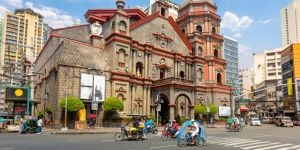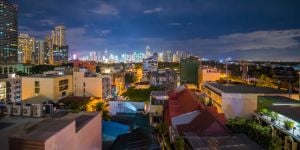65+ Retirees - how are you planning for those last days
Last activity 03 May 2018 by LemSaDipolog
1081 Views
15 replies
Subscribe to the topic
Post new topic
For those senior (65+) retirees.
Do you plan to spend those last few years/Months of your ailing health/life in the Philippines or return back to your home country in those twilight years.
I understand the benefits of life in the Philippines, when your fit and well, but we all must pass on one day. How do we cope when were approaching those final days, managing the daily chores, hospital visits and costs, mobility, travel. etc.
Do most of your only retire and stay while healthy and fit, then return back home once serious health issues arise?. Or have you found that its not a problem at all and those later years are just as caring and comfortable as they would be back in your home country.
Interested in your experiences and expectations
PS. Average life of Fillipino = 70 years. Average age of Westerner 83 years. do you think the average age of a Westerner Expat in the Philippines would decrees due to change of environment, diet, climate, etc?
Interesting post. I did not realize that the average age of a Filipino was that high, but for sure in many villages out in more remote areas of the Province, the average life expectancy is much lower than that! I have personally visited smaller communities where it seemed no one was older than 45 or 50. Is it the tropical humid air, since retirees in the US flock to desert climates for retirement and you see many healthy folks in their 80's and above.? That may be partly true, but lack of good medical care and poor diet may be bigger contributors as to why you might see extremely few Filipinos in the province living in their 80's or above.
Furthermore, there are very few rules and inspections in this country governing the quality of the food supply. Unless you have your own backyard garden or your own barnyard, it is impossible to know what the vegetables are grown in or how many hormones are fed to the chickens or other livestock. I do not believe their is any scientific study examining the long term health effects of the food supply here in the Philippines. What would be the short answer to the question if the quality of food here contributed to a shorter lifespan?
To answer the first part of the question posed by the author, I would think most retirees here would not have a quality lifestyle back in their home country during their twilight years. Of course, each situation is different. In many cases, do not many expats here have a much younger Filipina, and she is suppose to provide those needs in your later years?
Life expectancy in the provinces is determined by money.
Most families have very little emergency cash or items that are disposable in an emergency.
For example. Selling the cow or buffalo or fishing boat is not going to finance bypass surgery.
The only option is to make the person comfortable and just wait.
Very few have the option of When in pain, get on a plane.
Sad but true.
I agree fully with Silver Cobra. If you own your home and car here you can manage better than you would back home even with a much smaller pension. As long as we have money to return home if the occasion happens,
You do miss certain items that are not on the supermarket shelves like beetroot. High sugar foods are always a worry here even most of the bread. If you are happy with your partner/wife its all worth it. If you are Aussie, communication is always a problem as our accent is very hard for them to understand. Plus,s you are living in a land of happy people. Undisciplined drivers are always a problem with traffic enforcers, not the police doing the enforcing with limited vehicles. Enjoy your day all.
kilgore99 wrote:For those senior (65+) retirees.
Do you plan to spend those last few years/Months of your ailing health/life in the Philippines or return back to your home country in those twilight years.
I understand the benefits of life in the Philippines, when your fit and well, but we all must pass on one day. How do we cope when were approaching those final days, managing the daily chores, hospital visits and costs, mobility, travel. etc.
Do most of your only retire and stay while healthy and fit, then return back home once serious health issues arise?. Or have you found that its not a problem at all and those later years are just as caring and comfortable as they would be back in your home country.
Interested in your experiences and expectations
PS. Average life of Fillipino = 70 years. Average age of Westerner 83 years. do you think the average age of a Westerner Expat in the Philippines would decrees due to change of environment, diet, climate, etc?
I think you might not get a straight answer from the retirees here. Retirement is personal and each situation is different (and it's probably why people would rather respond to your query after "PS"). And besides, many things can happen and change from age 65 to 83.
Some of my friends from the states have this idyllic picture of retirement -- go on a cruise, tour the world, live near a beach, and in their final days, move in with their children / family and pass away in the presence of friends and family. I like that picture too. But life is so complex that it blurs the picture. Would I still be on good terms with family? Would my relationship with family become sour (like if I take on a young lover who might take some of their inheritance)? Could I afford medical care if I move back home? I guess, eventually, we will just play it by ear.
It's important to have a living will or advance medical directive. I am curious whether foreigners here, especially those over 60, have that.
kilgore99 wrote:. . .
PS. Average life of Fillipino = 70 years. Average age of Westerner 83 years. do you think the average age of a Westerner Expat in the Philippines would decrees due to change of environment, diet, climate, etc?
The number 1 cause of death in many countries, including the Philippines, is coronary heart disease. The Philippines is a third world country and a lot of Filipinos live in poverty. Many cannot pay for prolonged medical care.
Many are not properly educated on what causes the disease and ignore the symptoms. And those who do see a doctor might be stubborn in taking medication (or may take maintenance meds for a while and then stop when they feel better without consulting a doctor). Or they might just ignore the advice of a doctor and continue smoking or drinking or eating lechon (roasted pig), sugpo (buttered prawns) or other LDL loaded food, because of the mentality that you only live once. I think these are some of the reasons for the shorter life expectancy of your average Filipino.
I don't think the average life expectancy of an expat would be shortened just because he / she is in the Philippines. Though conditions here in the Philippines which are beyond our control such as climate and change of environment may affect life expectancy, the more determining factors for life expectancy are those within our control: exercise, diet, lifestyle (including alcohol consumption, smoking, substance abuse), sleep, risky behaviors, following doctors' orders including taking maintenance medication regularly, and saving enough or having insurance for medical emergencies and health care. With your education, and also considering your family's medical history, you know very well what to do to live a long and healthy life.
Most Filipinos do not get annual checkups, so serious illness is discovered too late. I know several who died of cancer, first discovered at stage 4. Also a couple of heart problems and one from dengue. Really sad.
I don't think the cities are healthy for anyone. Too much noise and particle pollution from diesel smoke, and ozone. Lots of trash and unsanitary conditions. Amazing they live to 70 actually.
Filipino food is not very healthy although we do manage to eat rolled oats, veggies, brown rice and fish regularly. If you see what many eat, the 20% diabetes rate does not surprise.
The climate is brutal, and makes it hard to exercise outdoors, I bike hills 3x/week but it's challenging due to the humidity and diesel smoke. Swimming is good and there are gyms here though.
If there is an event (stroke or cardiac or accident), good luck getting to the hospital within the golden hour. That said the doctors seem fairly proficient, in the major areas. It's getting access quickly that's hard.
So to summarize, no, I won't retire here permanently. No way. It's too risky and not even that cheap really. Better to bring the woman to the US if she's mature and reliable (not 25 yrs old, lol) or go somewhere else.
You have addressed an issue about which I have some serious concerns. How good is the medical care in the Philippines? How expensive is it? Are there "Assisted Living" accommodations available? If so, how expensive are they? Are there Expat retirement villages established in and around Manila? What kind of activities do most Expat retirees engage in? I would not want to relocate there just to vegetate for the rest of my life.
Any information you could provide will be greatly appreciated.
Thank you,
Dennis Pearson
dhpearson@comcast.net
The minimal level of medical care that I or my asawa have needed, has been fine here in Cebu. Good doctors, often trained overseas, with facilities more like in the US 40 years ago. No appointments though. You go and wait in the office half a day, see the doctor, and he prescribes the appropriate lab tests, meds, etc. The next day you pick up the test results and bring to him. Usually the total cost for all of this is about US $50. For everything. An MRI and two visits to the bone doc was under $300 when I hurt my knee. You don't need insurance at those prices.
It's a good way to go as long as you're healthy. But it's not advanced technology, or integrated like modern western care. Possibly you can get that in Manila. If I get cancer I will head back to the US where I carry catastrophic health insurance. But then it doesn't eat half your income here either.
I have seen no assisted living facilities here. In the Philippines family members always care for the elderly, but the infrastructure is not really suitable for living comfortably in the province. Best bet would be to stay in a nicer condo complex with landscaped grounds for walking, with a pool and gym. And one or two sweet Filipina caregivers. Not a bad way to age.
Thank you pnwcyclist. Your information was very helpful.
Dennis
I don't think it has anything to do with what you eat ,unless it is bad, I never eat street food, the diet here is probably healthier than in the west, but I live in the Province so most of what I eat is not preserved or raised with antibiotics, I am not afraid to die ,I have Phil health also a pretty good doctor I have a checkup about every year cost about 4,000 piso including lab work and doctor, if you come down with cancer you can go back to your country and maybe prolong your death, I am 75 and know I am not going to get a transplant of any kind, I don't want one I have lived a good life
Stay Fit......
Find someone now that you would trust for CNA level care and make them part of your household.
Answer for yourself how drastic a medical solution you are willing to endure to gain a few years and the resulting quality of life.
Private Hospital, reasonably priced by European Standards, are not cutting edge but what they do is good. As an aside more than half of the fees collected by the private doctor are taken as income tax.
The disparity in average life expectancy,,, lots of malnutrition here,,, public medicine is sketchy at best,,, this crazy white rice lots of starch diet....simple education on how to best take care of yourself definitely severely lacking.
Insurance is a joke, PhilHealth will pay out for a major operation less than expat's annual premiums. PH does not touch private hospital rates. My wife's PH paid only 10%. Other insurance companies work out to you pay out enough premiums in 5 yrs to pay for a MAJOR hospitalization. Office visits are less than what your copays were.
Maintenance drugs? Strongly advise against moving here if you are on any, get healthy.
Be careful to see what services are available within reasonable distance. Anything beyond an xray or quick in & out procedure requires a ferry trip to Cebu or Daumegette.
My plan, do not get sick.
If sick only for short time.
Strong relationship with our Creator
Please remember, the statistic you see is coming from the same government that says unemployment is less than 6%.....
I sincerely doubt 70 from the viewpoint of my neighbors in Mindanoa. The unemployment is really on the order of 50% nationwide.
this based purely on anecdotal evidence is more reasonable;
According to the latest WHO data published in 2015 life expectancy in Philippines is: Male 65.3, female 72.0 and total life expectancy is 68.5 which gives Philippines a World Life Expectancy ranking of 124.
To much rice based starch -> diabetes -> vascular degeneration -> ........
Good comments LemSaDipolog . Lots of guesswork here in the Philippines to make up most statistics is my opinion ....
I want to diverge into Philippines history which explains the current situation but it is far off topic other than to say the public health and health education sector is not much better than 3rd world. Environmental protection in Mindanao is in its infancy. You must be very careful of your food and water and sometimes even air due to open garbage burning. You must be willing to take your own welfare and care into your own hands.
That said, I live here, I will gladly take my last breath here with the family and friends I love. I am responsible for our immediate environs and lifestyles, and am honored, proud and happy to be here.
Articles to help you in your expat project in the Philippines
 Lifestyle in the Philippines
Lifestyle in the PhilippinesAbout to move to the Philippines? Wondering how you're going to adapt to your new environment and lifestyle? ...
 Getting married in the Philippines
Getting married in the PhilippinesGetting married in the Philippines provides a backdrop of immense beauty through stunning beaches, tropical ...
 Dating in the Philippines
Dating in the PhilippinesThe beauty of the Philippines, with its dramatic modern and old Spanish architecture, plus the golden sands and ...
 Obtaining a Philippines driving licence
Obtaining a Philippines driving licenceWhether you are converting your existing foreign driving license or applying as a first-timer for a Philippines ...
 Leisure activities in the Philippines
Leisure activities in the PhilippinesConsisting of more than 7,000 islands, the Philippines is a real treasure that you can explore during your stay ...
 Choosing your neighbourhood in Manila
Choosing your neighbourhood in ManilaChoosing a neighborhood is one of the most critical decisions that expats need to make when moving to Manila. Each ...
 Phones and Internet in the Philippines
Phones and Internet in the PhilippinesWhen moving to the Philippines, the first ‘essentials' is telecommunications; Getting a local sim card and ...
 Diversity and inclusion in the Philippines
Diversity and inclusion in the PhilippinesThe culture of the Philippines is very diverse. This is due to the large mix of different nations in this country, ...
Find more topics on the Philippines forum



